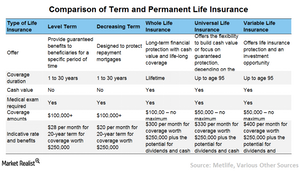AIM Uncovered
Exploring the latest insights and trends in technology and innovation.
Battle of the Policies
Dive into the Battle of the Policies and discover which strategies reign supreme! Uncover insights that could change everything!
Understanding the Impact of Policy Decisions: A Comprehensive Guide
Understanding the impact of policy decisions is crucial for both citizens and lawmakers alike. These decisions shape various aspects of society, including economic growth, social equity, and environmental sustainability. For example, National Affairs discusses how well-crafted policies can stimulate economic progress while poor policies can have detrimental effects. Moreover, recognizing the layers of complexity in policy formation helps individuals appreciate how their voices can influence the decision-making process.
To fully grasp the nuances involved, one must consider factors such as stakeholder engagement, empirical evidence, and performance metrics. An effective policy decision often relies on a thorough assessment of data and outcomes, which is highlighted in a Policy Choices report. Additionally, ongoing evaluation and feedback loops ensure that policies remain relevant and impactful over time, thus fostering a more adaptive governance model.

Battle of the Policies: Key Differences Between Major Political Platforms
The Battle of the Policies between major political platforms reveals significant differences in areas such as healthcare, education, and environmental regulations. For instance, the Democratic Party typically advocates for a more universal healthcare system, emphasizing the need for government intervention to ensure that all citizens have access to affordable medical services. In contrast, the Republican Party often promotes a private-sector-based approach, arguing that competition will lead to better quality and lower prices. This fundamental divergence highlights the ongoing debate over the role of government in personal health decisions, a key point of contention in electoral races.
When it comes to education policy, the differences are equally pronounced. Democrats generally push for increased funding for public schools, support for free community college, and measures to reduce student debt. For further insights, check out U.S. Department of Education. Conversely, Republicans may emphasize school choice, advocating for charter schools and vouchers that allow parents to select educational settings that best fit their children's needs. These opposing strategies contribute to a larger conversation about how to improve education access and quality, making it crucial for voters to understand the implications of each platform in shaping future educational policies.
How Do Policy Choices Shape Our Everyday Lives?
Policy choices play a critical role in shaping our everyday lives, influencing everything from the air we breathe to the quality of our education. For instance, local zoning laws determine the types of buildings that can be constructed in our neighborhoods, directly impacting housing availability and community development. Policies related to health care access dictate how easily individuals can obtain necessary medical services. According to a report from the Kaiser Family Foundation, health policy changes can significantly affect the insurance coverage rates and overall health outcomes of a population.
Furthermore, economic policies, including taxation and employment regulations, shape the job market and influence our financial stability. For example, a change in minimum wage laws can uplift low-income workers, while tax incentives for businesses can spur job creation in a region. A study by the Brookings Institution highlights how such economic choices can lead to a ripple effect, enhancing the quality of life for entire communities. Clearly, the policies enacted at various levels of government resonate deeply in our daily experiences, guiding the frameworks of our work, health, and overall societal interactions.